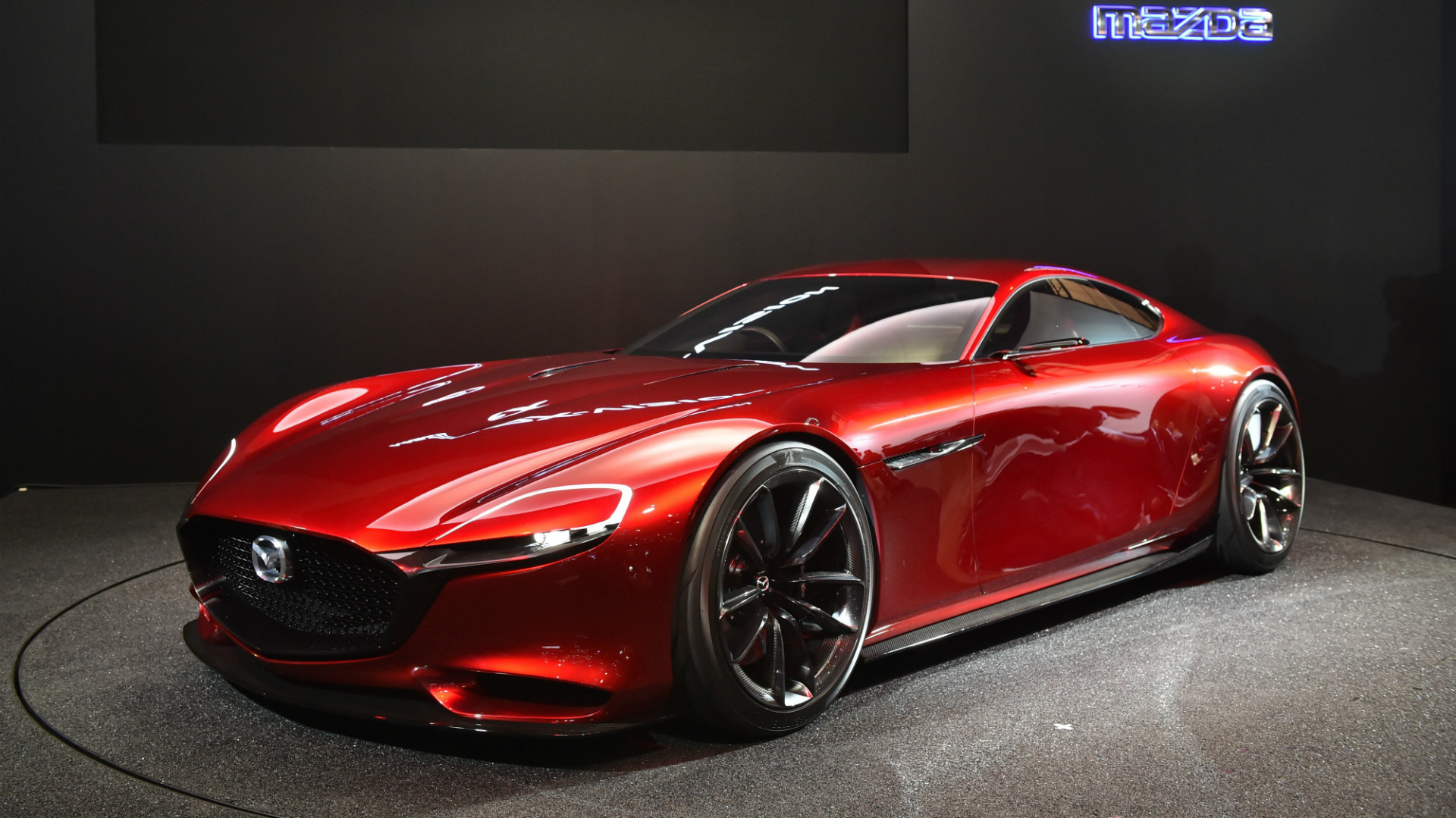

Revival of the Wankel rotary-powered RX-series sports car is still on Mazda’s mind despite an industry-wide trend toward electric vehicles.
“We know that electric cars will be important in 2020 to 2025, but also that EVs are not the answer for everything,” explained Wojciech Halarewicz, Mazda’s European communications lead, to Piston Heads. “Combustion engines will still play a part, and if you asked me if I want a rotary sports car at the top of the range, I’d say ‘yes, I’d love to have one.’ Many of my colleagues would too. So it’s a matter of keeping the sales growth going to make sure we can do one in the future.”
Mazda confirmed in September 2017 that a rotary sports car engine was in development, but at the moment, the rotary engine is more relevant to its electric vehicle technical partnership with Toyota. Mazda North America CEO and president Masahiro Moro previously linked the company’s rotary engine development to its joint electric vehicle program, specifically Toyota’s e-Palette automated concept vehicle. And a company spokesperson confirmed to The Drive that the rotary range extender “is part of our technical partnership with Toyota.”
Mazda reportedly could launch its first electric vehicle as soon as 2019, Toyota the following year. Early capitalization on the lower-end EV market could be crucial to expanding Mazda’s market share, which is diminutive compared to much of its Japanese competition. Mazda’s U.S. market sales in July were less than half that of Subaru’s, which in turn were half as large as Nissan’s, and about a quarter of Toyota’s. If Mazda can play in Toyota’s parts bin, it could increase its profitability, potentially making the business case for a low-volume RX-series sports car easier. Solving its emissions problems, however, may be another story.